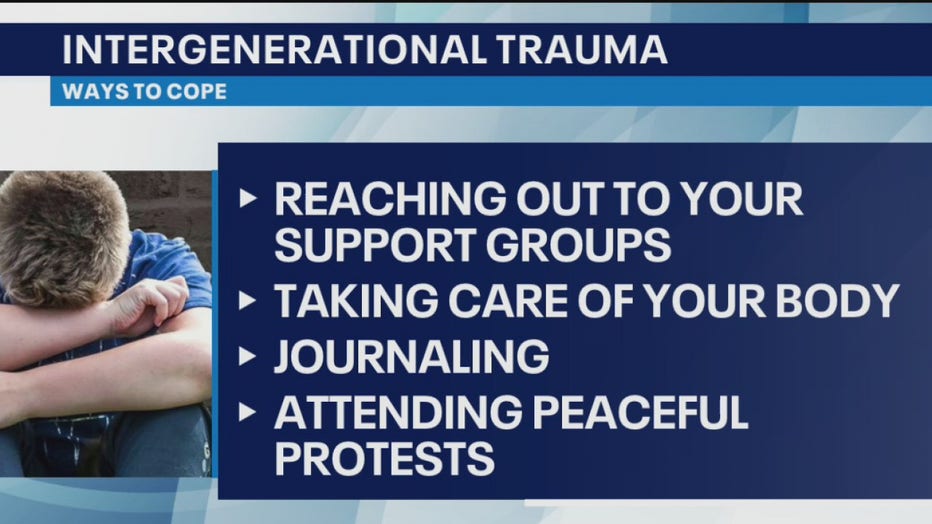'You're not alone': Identifying, coping with intergenerational trauma

Identifying, coping with intergenerational trauma
Intergenerational Trauma is embedding amongst people who have experienced genocide, war, slavery, and holocaust, etc. Intergenerational Trauma is trauma transferred from one generation to generation. Edit Alaverdyan explains more.
LOS ANGELES (FOX LA) - Intergenerational trauma is embedding amongst people who have experienced genocide, war, slavery, holocaust, and more. Edit Alaverdyan, M.S. AMFT explains ways to cope and how to be supportive to those who experience it.
Alaverdyan defines intergenerational trauma as trauma that transferred from one generation to another. It is the trauma that affects the mental and physical health of a generation which causes mental devastation amongst family members.
Usually, people who experience this kind of drama are vulnerable to stressors. Symptoms are likely to be Anxiety, Symptoms of depression, (e.g., helplessness, hopelessness) hypervigilance, lack of sleep, lack of nutrition guilt, similar to PTSD like symptoms.
Many people in different cultures can experience it.
This year, the United States had the social injustice movement, which triggered some in the community, leading to riots and peaceful protests.

IT triggers arise from years of dealing with denial, guilt, rejection lack of validation, and anger.

Some important ways to cope with IT are:
•Reaching out to your support groups
•Taking care of your body
•Journaling
•Attending peaceful protests
•Reaching out to family members
•Speaking in I statements (e.g., I feel sad, I feel angry.)
In times of wanting to support a friend or family member that has intergenerational trauma, it is important to remember you cannot take the role of the “fixer,” which can allow the person to feel the discomfort. Be ok with your discomfort as well, accept your feelings as they are, tell them words like “ I am here for you,” “can you teach me about what is happening,” and “ you’re not alone.”

